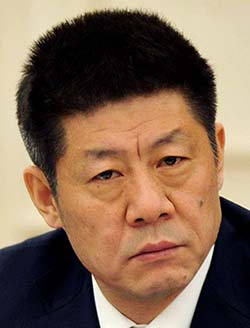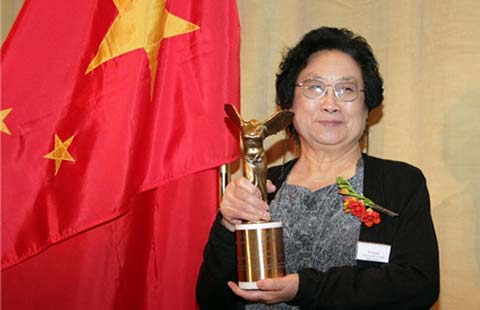Court cases surge after filing reform
Updated: 2015-10-12 06:46
By CAO YIN(China Daily)
|
||||||||
Changes aim to remove unnecessary barriers and protect the rights of litigants to appeal
Changes making it easier to file lawsuits have led to a huge increase in court cases over the past four months, especially administrative ones, according to an official with China's top court.
 |
|
Li Shaoping, vice-president of the Supreme People's Court [Photo/China Daily] |
Under a guideline issued by the Supreme People's Court in May, cases must be accepted when they are registered, rather than after a preliminary review of their merits, said Li Shaoping, vice-president of the court.
Courts also are required to respond to litigants promptly, with the aim of avoiding situations in which some courts ignored claims or refused to consider disputes, Li said.
"We want to remove unnecessary barriers in filing a case and protect litigants' rights to appeal," Li said. "It's a key enforcement to judicial reforms put forward by the Chinese leadership to fulfill the rule of law in 2013."
The number of cases filed has increased dramatically since the changes were made.
From May 1, when the guideline took effect, to Sept 29, Chinese courts accepted more than 7 million cases, including 216,626 administrative ones, according to the top court.
In May and June, courts accepted 1.13 million cases, an increase of 29 percent year-on-year. Nearly 30,000 involved administrative disputes, an increase of more than 200 percent year-on-year, Li said.
Previously, people had complained that it was too difficult to sue a government department. However, these problems were being eased with enforcement of the guideline, Li added.
Administrative cases have mainly centered on demolition work in property development projects and disputes between employees and employers.
Cases asking government departments to disclose information have risen in recent years, according to the top court.
Lin Jinbiao, a judge sitting on an administrative tribunal under Guangdong Provincial High People's Court, said making it easier to file cases could improve the court's public image and remove administrative interference to some extent.
"In the past, some local government departments interfered with courts' case filings," Lin said.
If litigants meet the qualification requirements and provide sufficient evidence, courts must file a case immediately. If a case requires a review and there are insufficient documents, courts must reply to litigants with an explanation within seven days, according to the guideline.
More than 1,200 administrative cases have been filed to Guangdong Provincial High People's Court this year, "much more than before and requiring us to work overtime to deal with them," Lin said.
Ying Songnian, a Chinese administrative law veteran at China University of Political Science and Law, praised the new guideline, but said "administrative cases are still too hard to win and we need to think more about this".
- Supreme People's Court to boost judicial transparency
- Shanghai pioneers quality approach to judicial reform
- China offers judicial help to Indonesia
- China configs "firewall" against official meddling in judicial cases
- Lawyers pin wrongful execution hopes on judicial files
- Achievements made in building transparent judicial system

 One killed in Northern Arizona University shooting
One killed in Northern Arizona University shooting
 Students join outdoor courses in countryside
Students join outdoor courses in countryside
 Stewardesses trained to show sweet smile
Stewardesses trained to show sweet smile
 Tourist attractions receive30 million visitors during Golden Week
Tourist attractions receive30 million visitors during Golden Week
 Top 10 most competitive economies
Top 10 most competitive economies
 Cold wave sweeps through China
Cold wave sweeps through China
 Taking a peek
Taking a peek
 News you don't wanna miss over the National Day holiday
News you don't wanna miss over the National Day holiday
Most Viewed
Editor's Picks

|

|

|

|

|

|
Today's Top News
Tu first Chinese to win Nobel Prize in Medicine
Huntsman says Sino-US relationship needs common goals
Xi pledges $2 billion to help developing countries
Young people from US look forward to Xi's state visit: Survey
US to accept more refugees than planned
Li calls on State-owned firms to tap more global markets
Apple's iOS App Store suffers first major attack
Japan enacts new security laws to overturn postwar pacifism
US Weekly

|

|







